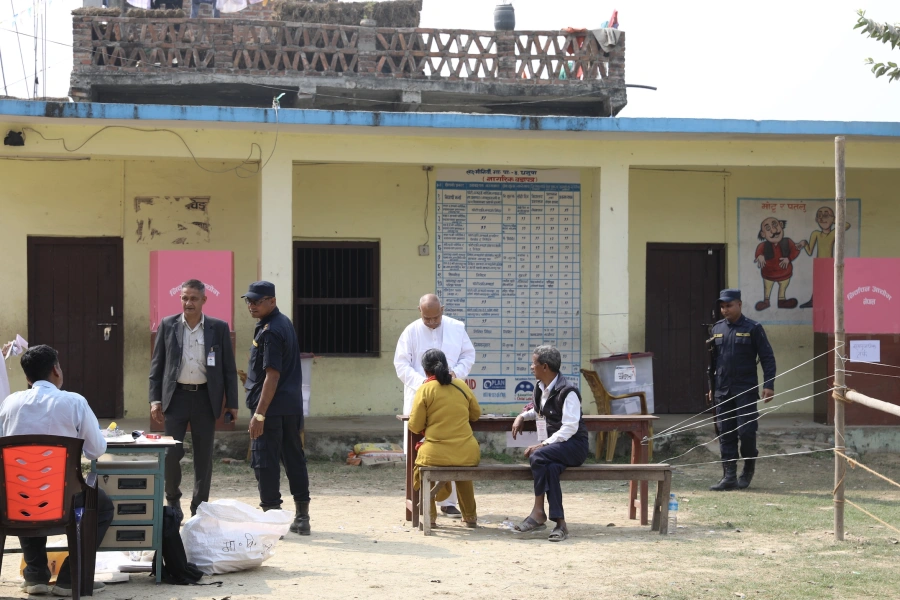KATHMANDU, May 24: The country's trade deficit in the first 10 months of th4e current fiscal year stands at Rs 1.2 trillion.
Every year, the government adopts a policy of increasing domestic production in the budget to substitute imports, but the results are disappointing.
The gap in trade deficit is widening as goods that can be produced domestically are imported from abroad. From mid-July to mid-May of the current financial year 2022/23, agricultural and commodity goods worth Rs 250 billion have been imported from abroad.
Rice, fish, meat, oil, onion, potato, coriander, etc. which are cooked in the kitchen of Nepalis are imported from various countries including India and China. Avocados that can be grown in Nepal are being imported from Uganda and Kenya, grapes from India and China, and kiwi from the United Arab Emirates and Greece.
Nepalis coffee connoisseurs are using coffee imported from Cyprus, Ethiopia, Hong Kong, Thailand, UK. There is a situation where we have to depend on foreign countries not only for agricultural products but also for fish and meat. Lamb meat is imported from Australia while milk products are imported from Japan, India, Qatar, UK.
Groundwater for food security

In the 10 months of the current fiscal year, Rs 47.29 billion went abroad for the purchase of food including rice.
According to the Department of Customs, the import of ready-made food items is worth Rs 11.69 billion, vegetables are worth Rs 27.53 billion, fruits and spices are worth Rs 16.19 billion. Similarly, the import of tea, coffee, and spices is worth Rs 6.64 billion. Likewise, as per the data of the Department of Customs, the import of tobacco products is Rs 2.76 billion, dairy products and other products are Rs 21.19 billion and import of mustard, oil, fruits and other seeds are worth Rs 20 billion.
The government has been promising to increase the production of various agricultural products in every year's budget. For the development of the agricultural sector, Rs 55.97 billion have been allocated for the Ministry of Agriculture and Livestock Development in the current year. In the financial year 2022/23, an amount of Rs 45.90 billion was allocated to the agricultural sector.
The Ministry of Agriculture and Livestock Development claims that the import of agricultural products has decreased slightly compared to the past. Stakeholders say that the import of agricultural products and other goods has decreased due to the economic recession in the economy.
Govinda Prasad Sharma, Secretary of the Ministry of Agriculture and Livestock Development, said that preparations are being made to increase production by using barren land to replace imports.
According to Sharma, there is a plan to replace imports by increasing the production of rice, corn, vegetables, oranges, apples, fish and milk. “We have adopted a policy to promote exports,” said Secretary Sharma, “ Also, import of rice has decreased."
Most of the imports are agricultural products. Although the government has been saying that it will substitute imports by increasing agricultural production, the import of agricultural and animal products has doubled in a period of five years.
According to the Ministry of Agriculture and Livestock Development, goods worth Rs 341.51 billion were imported in the last year 2022/23.
In the year 2018/19, goods worth Rs 171.30 billion were imported. Imports have been increasing every year since then. There is data of import of agricultural products worth Rs 187.65 billion in 2019/20, Rs 212.72 billion in 2020/21 and Rs 284.98 billion in 2021/22.
This data clearly shows the increasing dependence on the production of agricultural products in Nepal. Although the government and political leadership have given slogans of agricultural self-sufficiency, it is not seen in practice. In the absence of modernization, mechanization and commercialization in agriculture, dependence on agricultural products is increasing.
Even agricultural products such as Rice, corn, wheat, potatoes, bananas, apples, etc. which can grow in the fields of Nepal are being imported from abroad.
In the absence of mechanization and commercialization in agriculture, goods that could be produced domestically have been imported from abroad. As the production cannot be increased, there is a situation of having to depend on foreign countries for agricultural products.
Although there has been some increase in investment in agriculture, the production of the main food crops has not increased. Vegetables, fruits, tea, coffee, onion, ginger, garlic, turmeric, cardamom, lentils, chickpeas, mustard seeds, oilseeds, mustard, soybeans and other crops are not produced as per demand of Nepali market, so we are obligated to depend on foreign countries.




































